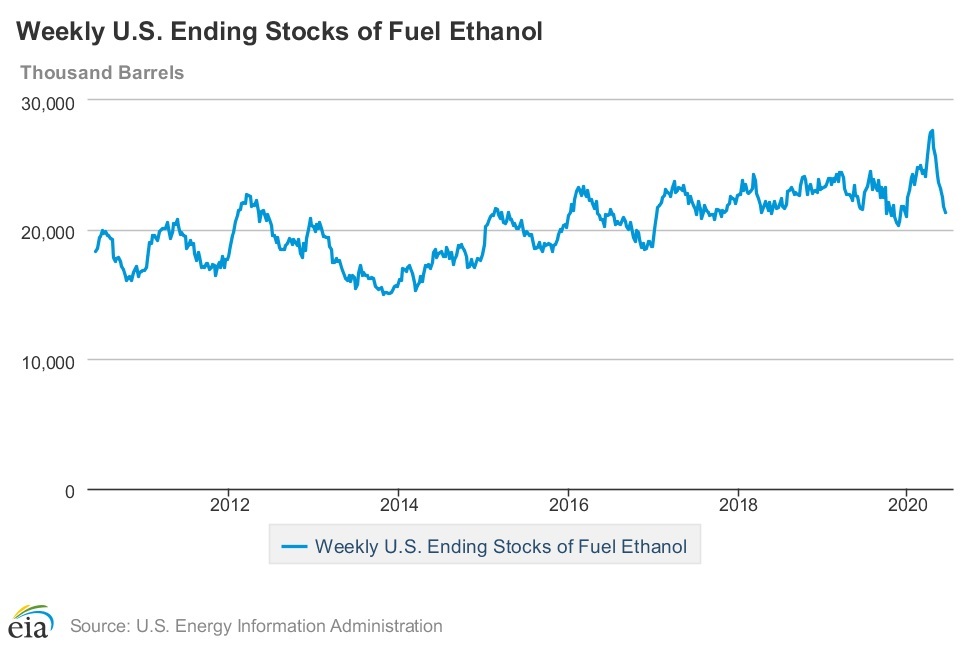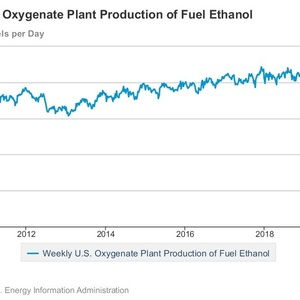US ethanol production up slightly, weekly ending stocks down 2%



June 17, 2020
BY Erin Krueger
U.S. ethanol production was up slightly the week ending June 12, while weekly ethanol ending stocks were down approximately 2 percent, according to data released by the U.S. Energy Information Administration on June 17.
U.S. fuel ethanol production reached averaged 841,000 barrels per day the week ending June 12, up from an average of 837,000 barrels per day the previous week. The week ending June 12 marks the seventh consecutive week of growth following sharp declines that began in late March and continued through April due to the impacts caused by the COVID-19 pandemic. Production was down 240,000 barrels per day when compared to the same week of 2019 and down 238,000 barrels per day when compared to the final week of February, before U.S. fuel markets started to be impacted by COVID-19.
Weekly ending stocks fell to 21.346 million barrels the week ending June 12, down from 21.802 million barrels the previous week. The week ending June 12 marks the eight consecutive week of falling ethanol stocks following a record high of 27.689 million barrels set the week ending April 17. Weekly ending stocks were down 267,000 barrels when compared to the same week of 2019.
Advertisement
Advertisement
Related Stories
Iowa farmers have a new market opportunity for their 2025 soybean crop. Landus is expanding its Clean Fuel Regulation initiative, made possible by recent policy changes expected to increase Canada's demand for liquid biofuel.
Topsoe, a leading global provider of advanced technology and solutions for the energy transition, has been selected as the renewable diesel technology partner for CountryMark’s Mount Vernon, Indiana refinery.
The U.S. exported 35,953.6 metric tons biodiesel and biodiesel blends of B30 or greater, according to data released by the USDA Foreign Agricultural Service on Aug. 5. Biodiesel imports were at 2,148.9 metric tons for the month.
XCF Global leverages Alfa Laval technology to enhance pretreatment capabilities at New Rise Reno facility
XCF Global Inc. on Aug. 5announced it leverages Alfa Laval Inc. pretreatment technology at its New Rise Reno biorefinery, a sustainable aviation fuel (SAF) plant located in Nevada. The pretreatment technology enhances feedstock flexibility at the plant.
U.S. Secretary of Agriculture Brooke L. Rollins on Aug. 1 announced the opening of a 30-day public comment period for stakeholders to provide feedback on the department’s reorganization plan, as outlined in the memorandum released July 24.
Upcoming Events










